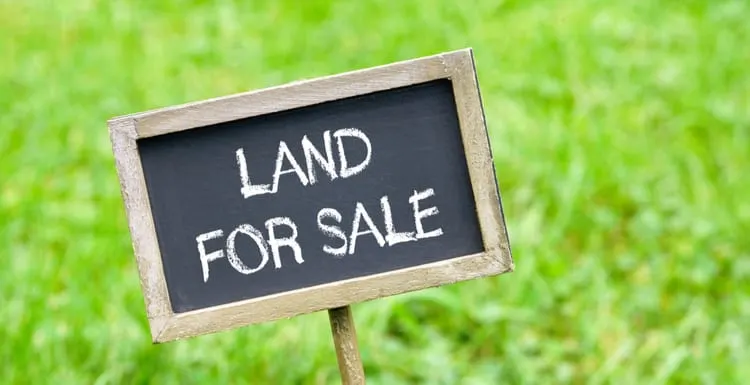If you’re wondering how to buy land, you’re in the right place. Our complete guide will teach you the process of finding and buying land for sale. Read on to learn more.
How to Buy Land
Wondering how to buy land? It might seem like an easy question, but knowing exactly how each step of the process works can help you have a better understanding of your purchase and investment.
With the right information and guidance, you can feel confident that you’re making the right decision – or that buying land may not be the right investment for you.
Working with real estate professionals and clients over the years has shown us that sometimes the questions that seem “broad” or easy to answer are the ones that plague people the most. Buying land isn’t the same as buying a house.
There are different things to consider – location, access to utilities and nearby towns, acreage, zoning, topography, and more – that deserve your full attention before you start the process.
Financing land is a lot different from financing a home, too. Most lending institutions view land as a riskier investment than homes and have strict rules in place about how much they’ll lend, interest rates, and down payment requirements for land loans.
We’re here to show you precisely what the process of buying land looks like, so you’ll know what to expect from considering which property to buy, purchasing the property with cash or financing, and making improvements to the land to increase the value of your investment.
4 Key Considerations When You Buy Land
When you’re planning to buy land, you need to make sure you have as much information about what you’re looking for as possible.
While there are many benefits to buying land, there are also things to consider before taking the plunge.
Find the Right Location
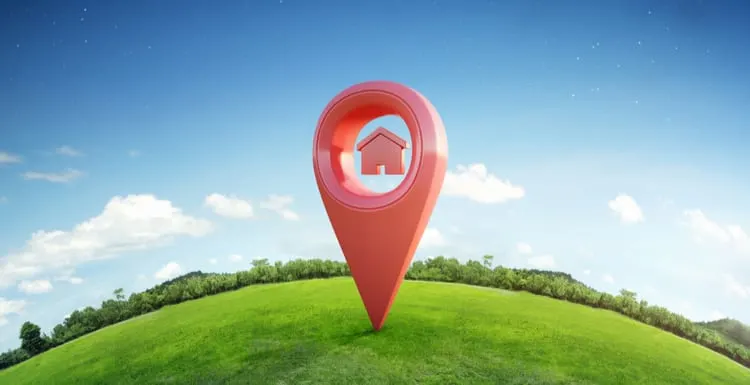
Terng99/Shutterstock
Where do you start? Pinpoint the location and area you’re most interested in. Where do you see yourself living or owning a beautiful piece of property?
Check with a local real estate agent and look online and in real estate publications to discover land that is currently for sale in the area you like best.
After you determine your land buying reasoning, a real estate agent who is experienced in facilitating land purchases can help you get a look at any land for sale within your area and guide you through the process.
Consider your purpose for buying land. Are you planning to build on it and live there? Build on it and sell it. Hold it for a while and sell it?
If you are building, make sure the location is convenient for your normal destinations like school, work, and fuel stations. It’s smart to consider how long it takes to get to a hospital, too.
If it’s always been your dream to have a stream running through your yard, or if you’re looking for land that would be appropriate for farming or building multiple structures on, keep those points in mind as you look.
If you’re working with a real estate agent, make sure to let them know exactly what you’re looking for. In many cases, agents who specialize in land investing can help you find the plot of your dreams.
Consider Utilities and Roads
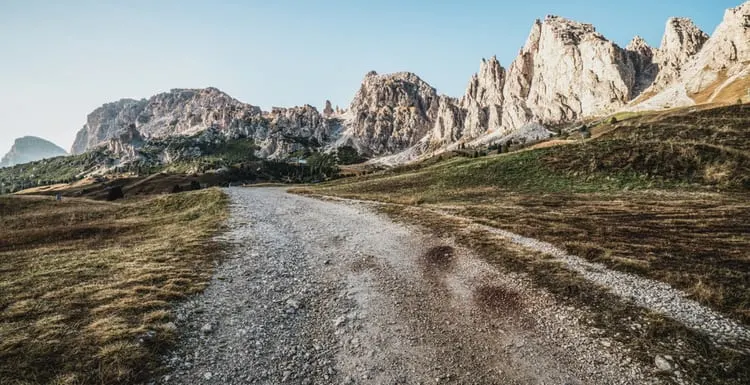
Blue Planet Studio/Shutterstock
Does the land you’re interested in have access to city sewage, water, electricity, and the internet? The utilities that are already available are an important thing to consider.
It can be a slow, complicated, and expensive process to have the proper lines, connections, and systems running. You might have to pay upwards of $5,000 to have a septic tank and water main pipe installed.
This access to utilities is a big part of determining the value of the land. Even if you don’t plan on building a structure on the property, the person you sell to may want to build on the property, and they’ll certainly be looking for land that is already connected to the access they need.
Aside from utilities, your property needs road access, too. Things aren’t always as they seem, so don’t assume that a road or driveway leading to the property would belong to you. It may be on an easement that will require you to get permission (and pay a fee) to use it.
Zoning Issues
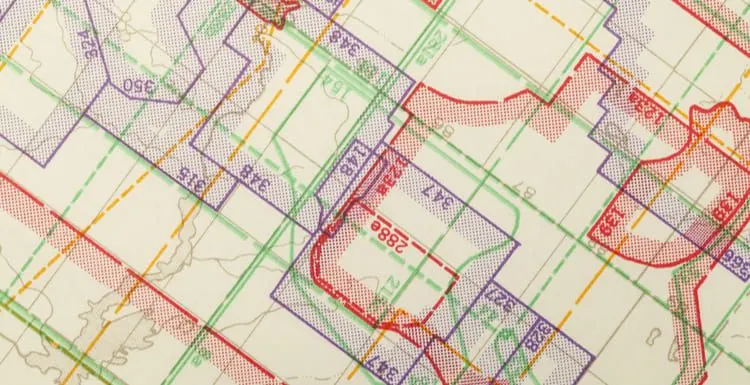
Mega Pixel/Shutterstock
Land listings might list the zoning designations the property falls under, but it’s worth doing your own research to be sure. Land can be zoned as:
- Commercial
- Residential
- Industrial
- Rural
- Historical
- Aesthetic
- Environmental
The zoning designation could mean that you’re not allowed to build on the land at all, so you must find this information out as soon as you’re considering a plot of land.
You can check your local zoning ordinances to find out how the property’s zoning could affect your use of the land.
Terrain and Topography

Modulo18/Shutterstock
The piece of property you’re looking at may be beautiful, but is the terrain and topography practical for you to build on or enjoy for the purposes you have in mind?
A soil test can give you information about the soil quality, and you can see how rocky and rough the terrain is. Will it get in the way of your plans?
Keep in mind that some structures, like basements and septic systems, are harder or impossible to install in the wrong terrain. If you’re planning on clearing trees to create an open area to build, make sure your local laws and regulations will allow it.
Checking on these things ahead of time will ensure you’re not wasting time and money purchasing land. You can’t use it the way you want.
How To Purchase the Land
Once you’ve found a plot of land that meets your specifications and requirements, the next step is to purchase it, usually by financing. There are a few options when you pay for land. We’ll cover them all here.
Conventional Loans
You might be able to take out a conventional loan—a mortgage—to purchase your land. Still, some lenders are hesitant to offer mortgages on land, which is considered a riskier investment than developed property.
If you’re able to secure a conventional loan, you might not be able to borrow enough to cover 100% of the cost of the land, so this option is best if you have some cash and just need a loan for the remaining amount of the purchase price.
Cash Purchase
If you’ve been saving cash and can make the purchase yourself, it’s your best option by far.
You’ll likely be able to get a lower purchase price on the condition that you pay in cash; you won’t have to pay interest, and the land will be yours right away. All you’ll have to cover is the cost of the land and any property taxes.
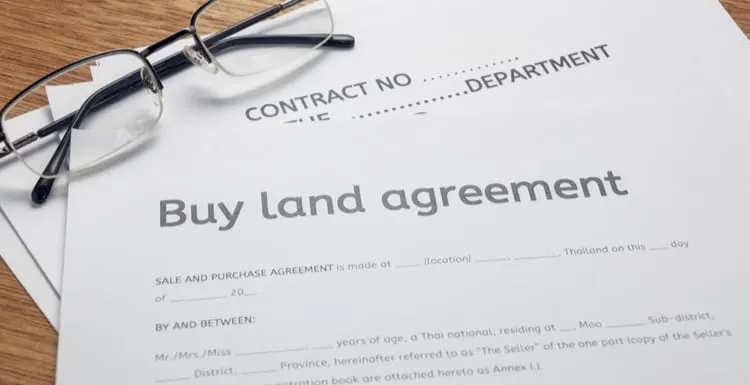
Osabee/Shutterstock
Land Loans
If you’re in a rural location, you might be able to get a short-term, higher-interest land loan from your local savings and loan company.
This is likely not your best option because you’ll have to put a large amount of cash down on the loan—up to 50%—and pay a higher interest rate.
Owner Financing
If the land’s owner is motivated to sell, they may be willing to finance the cost of the property for you. If that’s the case, you’ll pay the owner a sizable down payment and make regular payments on the property over time, just like you would with a conventional loan.
The owner will determine all the financing terms—how much they’ll charge in interest, how long you agree the loan will be in place, and what will happen if you default on the agreement.
Regardless of the cash or financing option you choose, once the property is paid for, you’re a landowner. What will you do with your land now? There are a few ways you can improve the lot right away, whether you’re planning to build a home there or not.
Increase the Value of Your Land Investment
If you want to make the most of your land investment, you’ll benefit from improving the lot and increasing its value. There are several ways you can do this. Below are a few common ways to improve the value of land.
- Build a home. An empty lot is much less valuable than property with a home on it. You can drastically improve the value of your land by building on it. Just make sure you’re following all zoning regulations, like we discussed earlier in this guide.
- Secure access to utilities. If the property didn’t have access to utilities (water, gas, electricity, phone, internet, etc.), you can increase the value of the land and make it more attractive to later buyers if you secure access to those utilities now. This could cost $5,000 or more, depending on your distance from utility connections and how the lines, systems, and connections will have to be run.
- Improve road access. If you’re not on an easement and the driveway or road to the property is truly yours, it’s a good idea to spend a little money to improve it and make access easier or more stable. A gravel driveway may be washed out in heavy rains or develop potholes, so consider paving to make access easier and more secure. If there is only a dirt path, starting with a gravel driveway can be a big step up that improves the overall value of the lot.
- Have the land rezoned. If the property is currently zoned for something like rural or agricultural use, having it rezoned to residential (or commercial) can improve the value of the land.
- Sit on it. Even if you do nothing to improve the value of the property directly, just holding it for a long period will increase value quite a bit. As land continues to sell off around it and more of it is developed, your lot will likely rise in value.
So, How Do You Buy Land?
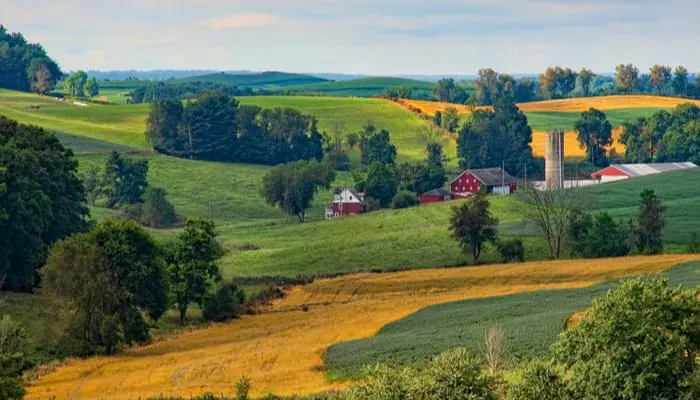
Ronald E Grafe/Shutterstock
Whether you’re interested in buying land as an investment or as the site of your new home, buying land is a straight-forward process that anyone can do.
Start by finding the area and location you want to purchase land in. Make sure the properties you consider are suitable investments by checking their zoning designations, road access, utility access, and terrain and topography.
Once you’ve found the perfect piece of property, determine how you’ll finance or pay for it. Cash is always the best option (no interest; cash discounts often apply), but you may be able to secure a conventional, land, or seller loan for the purchase.
In most cases, financing will require a hefty down payment, so be prepared to put up to 50% of the land cost down. After you’ve successfully purchased and paid for the property, you’ll want to make improvements that increase the value of your investment.
Building a home isn’t the only way to do this. Improving road access, securing access to utilities, having the property rezoned to a higher use, or simply holding onto the land as it grows in value over time are all possibilities.
Whether you’re buying land for personal use or as a smart real estate investment, these strategies and considerations remain the same.
Becoming a landowner is a great way to start investing in real estate with a relatively low entry point and potentially high returns over time, especially if you make improvements to the lots you purchase.
As long as you have enough cash for a down payment or to pay for the lot in full, you can become a landowner and real estate investor who’s well on your way to earning exciting returns.

